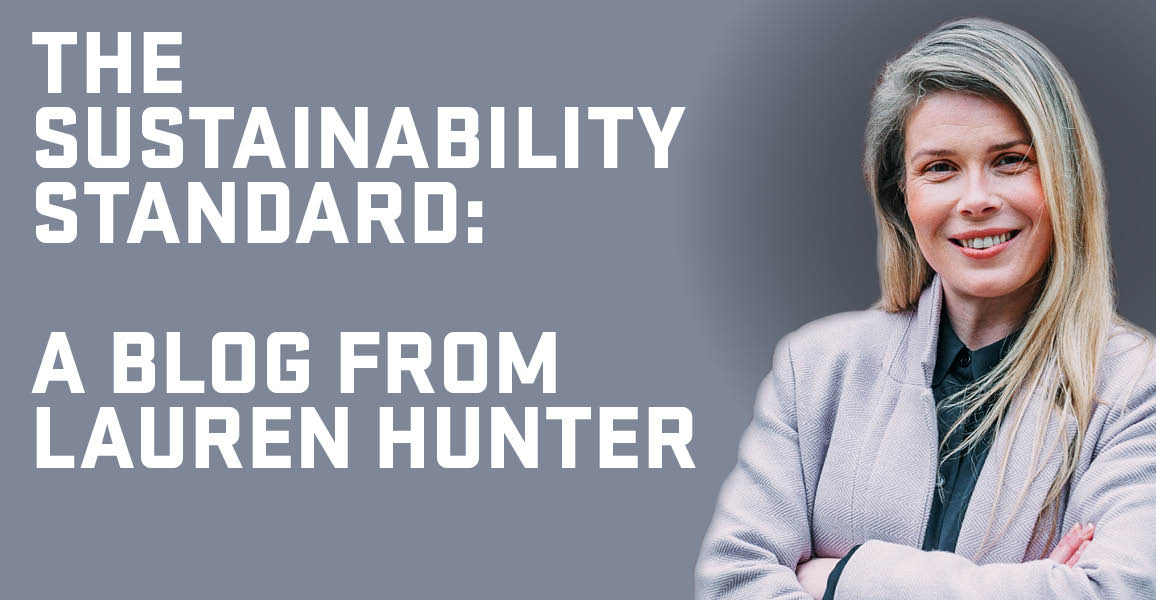
My son Jack is 11 years old. He loves to play Roblox and Minecraft with his mates and one of the things he enjoys doing on those games is to build coffee shops and restaurants. Seriously, he loves to design kitchens. Now, he’s never directly said to me, “Mum, I want to do what you do” and join the foodservice industry, but if he turned 18 today, would I really want him to? At the moment, I’m afraid the answer is probably “No”, and that’s quite sobering for me to acknowledge. Because I genuinely love this sector, and goodness knows we need to encourage young people to join it. But I wish it would change some of its ways. Fast.
The truth is, I don’t really want my son to have to experience the same kind of dated, backwards-looking attitudes many of us still have to. Now, if we were to foster an industry where we’re not sat in a car for six hours a day, and then still working until after 11pm at night catching up on emails; where there is more emotional safety; where wellbeing is prized; where we consider our impact on the planet and its people more, then I might think differently.
The final point is one key thing that needs to happen very quickly. One of my passions is helping equipment manufacturers and fellow consultants to understand the need to accurately measure embodied carbon for operator clients. We need to get to grips with that as an industry now, and work towards a unified standard – a standardized framework to help manage measure emissions data for operators.
I’m also passionate about data analytics and equipment benchmarking to show operators how they can buy their equipment a little bit better, to show how sustainable their equipment needs to be and how long it might last for them. My big dream is to start looking at how we optimize waste. Rather than food waste going to landfill, how can a hotel brand, for instance, turn it into a resource through anaerobic digestion or biomass? We need to start flipping the script and embracing net-zero as something wonderful to work towards, innovatively.
I just think we’re got quite stale as an industry. Dare I say, a little unfit? We don’t do things that are ‘out there’ anymore. We stay in our lane too much and don’t innovate in ways that we could. The world has changed. Other industries have adapted to that really well, but in many ways, our industry is inherently bad at change. Change is difficult. We all know that. But the way that I see sustainability and net zero is not that it’s a pain in the neck. It’s an opportunity for evolution.
Witness the fitness
If we can fully understand the carbon footprint of a kitchen, we can make so many other efficiency gains in an operation. And save our clients money! But if you can’t measure it, you can’t manage it.
If you were paying a fitness coach £200 a month to help you lose 10 kilos, and they don’t put you on the scales at the start of the first training session, you wouldn’t accept that. You would want to know your initial weight, so you know how much you needed to lose. In our industry when it comes to measuring carbon, we seem to be obsessed with reducing numbers when we often don’t really know at what point we’re starting out from.
I used to be a professional Rugby League player, and I still look after myself in terms of fitness. Now, I could tell someone that I can run 5km in 25 minutes and they might just say to me, “Wow, that’s really quick.” Sounds plausible enough… but it’s not actually true. I can only run that distance in 33 minutes these days. But a person would probably make a set of assumptions about me and not question that it might not be true. It’s no different in our industry. We need to see the real data behind sustainability claims so we can substantiate the numbers. And then improve them.
There is an education gap when it comes to sustainability in this industry. We need to de-jargonize it. We need to do right by the customer, and we need to get back to an application-style selling of equipment. This is not just about saving the planet – although clearly, we do need to do that too – it’s about cost control, improving logistics and supply chains, and introducing better product life cycle management. It’s just better to be leaner. It’s better business.
If we can move the dial in terms of sustainability and make this industry more fit for purpose, we’ve got an opportunity to embrace a brighter future. If that happens, I guarantee that younger generations will see this industry as one they actually want to join too. From Minecraft to a real craft – now, that’s got to be worth getting in shape for.
About the author:
FCSI Senior Associate Lauren Hunter is commercial director at ImpactLoop and chairwoman of CIBSE TM65 for commercial catering equipment. Email her at lauren@impact-loop.com.
